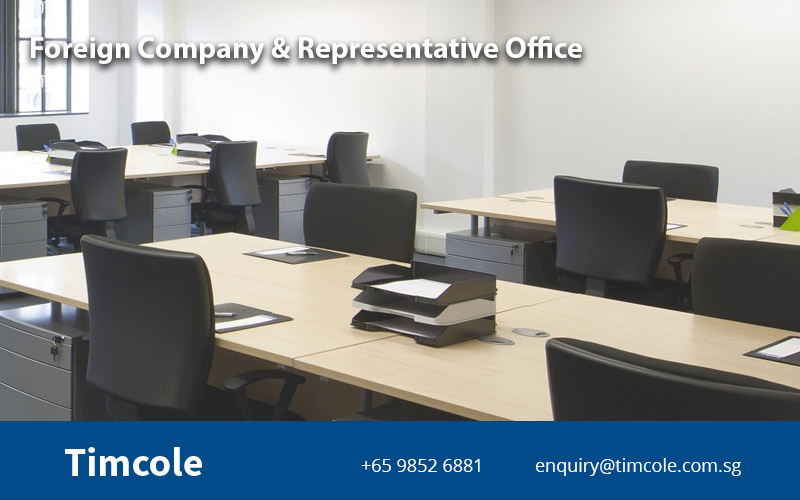A representative office, under Singapore law, is a temporary entity that enables foreign companies to manage company affairs or explore the market in Singapore without any handling of profitable business activity.
An important highlight of representative offices is the fact that they do not have legal personas. Consequently, these offices can’t sign contracts, open letters of credit, raise invoices, lease warehouses, handle trades directly or for their parent companies overseas.
Foreign companies usually bear implicit liability for all the operations of their representative offices within the country.
Individuals or companies are generally advised to form a representative office if their main objective is to analyze the business environment in the country prior to committing their investment. The same is true if the company has considerable non-core activities to be handled within the country.
When setting up a representative office, take note that:
- The maximum number of local support staffs that a representative office can hire is five.
- The office must have a representative staff from its head office overseas.
- Representative offices can’t continue with their operations beyond 3 years. Beyond this period, the office needs to upgrade itself to a subsidiary company or a branch office.
- If the representative office operates in the insurance, finance, or banking sectors, it is mandatory to register the office with MAS (Monetary Authority of Singapore). For offices in other fields or industries, they need to register with IE (International Enterprise) Singapore.
| Disadvantages |
Representative offices are more of a temporary vehicle. They can’t guarantee revenue. |
| Minimum Setting up Requirements |
The office must hire a Chief Representative who’ll relocate from the headquarters. |
| Annual Filing |
Annual filing isn’t applicable for subsidiary offices. |
| Tax Benefits |
There’s no corporate tax for subsidiary offices. Employees must pay personal tax. |
| Bank Account |
A representative office can open bank accounts in the country in order to run their cost center operations. The parent company must provide funding. |
| Tax Treatment |
It’s not applicable. |
| Local Person Requirement |
A representative office must have one chief representative staff from the main head office who will relocate to Singapore. |
| Limited Liability |
Yes. |
| Filing of Accounts with IRAS and ACRA |
No. |
| Cessation of the Business Demise of a partner/member |
Not applicable. |
| Normal Registration Time |
The normal registration time for a representative office is 3 – 5 days. |
| Requirement for Setup |
The foreign entity must have a sales turnover of over $250,000. Additionally, the foreign company must have been in establishment for over 3 years. |
| Staff Hiring |
A chief representative from the parent company must be a staff member at the representative office. The office can hire only five workers. |


